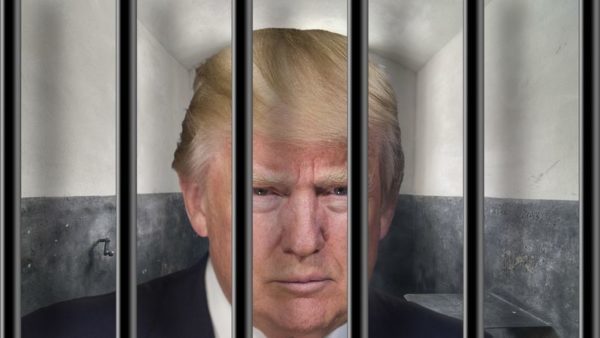TOPLINE
Prosecutors slimmed down an indictment against former President Donald Trump on Tuesday in his federal case for trying to overturn the 2020 election, after the Supreme Court gave Trump some immunity, but he’s still charged with four federal crimes including conspiracy to defraud, obstruction and conspiracy of rights—which all could carry prison time if he’s convicted.
The updated indictment keeps the same four felony counts that Trump was initially charged with: conspiracy to defraud the U.S. (18 U.S. Code § 371), conspiracy to obstruct an official proceeding (18 U.S. Code § 1512), obstruction of and attempt to obstruct an official proceeding (18 U.S. Code § 1512) and conspiracy against rights (18 U.S. Code § 241).
Conspiracy to Defraud the United States: 18 U.S. Code § 371 makes it a crime for two or more people to “conspire either to commit any offense against the United States, or to defraud the United States” or any federal agency, and for one of them to perform some action that would affect the object of the conspiracy, which carries a fine or maximum prison sentence of five years if convicted.
The DOJ charged Trump with conspiracy to defraud based on his broad plan to overturn the election results, alleging the former president “[used] dishonesty, fraud, and deceit to impair, obstruct, and defeat the lawful federal government function by which the results of the presidential election are collected, counted, and certified by the federal government.”
Conspiracy Against Rights: 18 U.S. Code § 241criminalizes when two or more people “conspire to injure, oppress, threaten, or intimidate” any Americans “in the free exercise or enjoyment of any right or privilege” they’re afforded under the Constitution or federal law, or conspire to oppress them because they exercised that right, and is punishable by a fine or up to 10 years in prison, assuming the crime doesn’t result in death or bodily injury.
The law, though initially enacted in the 19th century to punish members of the Ku Klux Klan, has more recently been used to prosecute election crimes, and the indictment alleges that by trying to overturn the election results, Trump conspired “to injure, oppress, threaten, and intimidate” Americans in exercising their right to vote.
WHAT TO WATCH FOR
Trump’s case is now moving forward again in federal district court after being paused for months as the Supreme Court decided the immunity issue. Prosecutors and Trump’s attorneys will file reports by Friday laying out how they want the case to proceed from here, and U.S. District Judge Tanya Chutkan will hold a hearing September 5 on the proceedings. Trump’s lawyers are likely to challenge the updated indictment as still going against the Supreme Court’s immunity ruling, and it still remains to be seen what charges will ultimately make it through to trial—a process that’s likely to take a while to litigate, and could go back to the Supreme Court.
CHIEF CRITIC
Trump has pleaded not guilty to the charges against him, though he will have to be arraigned again based on the updated indictment. The ex-president has decried the case against him as a “witch hunt” and railed against the updated indictment on Truth Social Tuesday, sayingthe “ridiculous new Indictment … has all the problems of the old Indictment, and should be dismissed IMMEDIATELY.” “This is merely an attempt to INTERFERE WITH THE ELECTION,” Trump claimed, going on to claim “the whole case should be thrown out and dismissed on Presidential Immunity grounds.”
FORBES


Leave a Reply
You must be logged in to post a comment.